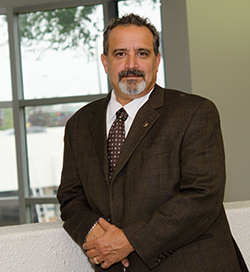Page Content
Inadequate technical support was one of many problems experienced by some teachers during the administration of the 2014 SLA pilot.
Move to voluntary participation a positive sign, but flaws remain
 ATA President Mark Ramsankar is pleased with the province’s decision to move to voluntary participation for this fall’s Grade 3 Student Learning Assessment (SLA) program.
ATA President Mark Ramsankar is pleased with the province’s decision to move to voluntary participation for this fall’s Grade 3 Student Learning Assessment (SLA) program.
Alberta Education announced the switch in an email to school board superintendents on Aug. 31.
The move is an important indication that the government is willing to listen to teachers’ concerns about SLAs, Ramsankar said.
“It is very important that the government gets this program right,” he said. “If SLAs are to become a permanent replacement for Grade 3, 6 and 9 Provincial Achievement Tests, then students and teachers need to feel confident that they will be adequately supported by government and by school boards.”
The Association had been pushing for the change toward voluntary participation since May. On May 15, after the provincial election but before the new NDP government had been sworn in, an email from deputy minister Lorna Rosen to school board superintendents announced that participation in the second year of the pilot administration would be mandatory for all Grade 3 students.
Teachers had concerns about the program’s mandatory nature after many students and teachers were adversely affected by complications during the fall 2014 administration, Ramsankar said.
Teachers also expressed significant concern about the adequacy of time to prepare for, administer and mark the assessments, as well as the availability of IT support and professional development related to the SLA program.
“The fall 2014 administration was a complete mess,” Ramsankar said. “I’m concerned that government staff has not taken the feedback provided by the Association seriously and that we will end up with another flawed implementation this fall.”
With this fall’s SLA administration now voluntary, the onus falls on school boards to ensure that appropriate supports are in place for students and teachers, he said.
“If boards can’t commit to providing adequate support, then they are obligated to opt out.”
School boards had until Sept. 8 to inform the department whether or not they will participate in the 2015 pilot. Over the course of the past week, Association locals have been contacting superintendents to determine what plans would be in place to ensure their successful participation.
Extraordinary demand
Failure to provide adequate supports will create an extraordinary demand on teacher time that may be viewed as a violation of the ministerial order on teacher work that was established as part of the 2013 Provincial Framework, Ramsankar said. That order states that, “every School Board must use best efforts to reduce unnecessary tasks which are initiated by the School Board and required to be done by teachers.”
Palliser Regional Schools quickly announced that it would not be administering the assessments.
“Our division remains committed to assessment practices that inform our practice and data-based decision-making to improve learning, but I have heard the valid concerns raised by our teachers about this particular assessment tool,” said Superintendent Kevin Geitz in a news release.
Elk Island Public Schools, on the other hand, has opted in to the pilot. It has offered teachers a number of supports, including support to attend a regional professional development session in September, funding to attend collaborative marking sessions and the opportunity to visit other schools to observe implementation. The district has also identified two lead contacts who will be available to go to schools and assist with administration of the SLAs.
In principle, the Association has been supportive of SLAs as a potential alternative approach to the Provincial Achievement Tests. This support was based on the promise of SLAs to provide meaningful information to teachers about student progress at the start of the year so that it can be used to guide future learning.
In August, Ramsankar called the SLAs a “well-intended initiative that has gone off the rails.” He said that while teacher advocacy had brought about some revisions to the program — such as extending the time frame for administering the program and granting teachers prior access to the questions and tasks — the changes fall far short of addressing teachers’ concerns.
At the ATA’s Summer Conference, Education Minister David Eggen said he shared concerns about the province’s approach to student assessment and vowed to listen to teachers as the SLA and entire assessment program was being reviewed.
Ramsankar said he hopes the minister will continue to listen to teachers as the province works to address the “fundamental flaws” with the current program and develop a better approach to provincial assessment that will enhance student learning. ❚
